Exploring the Splinterlands Card Anatomy
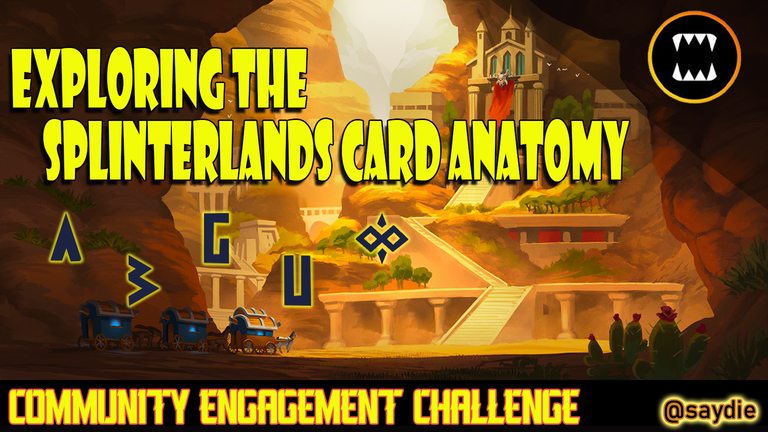
Hello there! @saydie here, playing Splinterlands everyday!
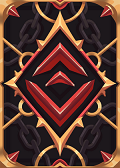
As a trading card game, Splinterlands core gameplay revolves around the use of different cards, building different synergy lineups and combinations in order to defeat the opponent and because of that, having the knowledge about anatomy of the cards is very important specially if you are a new player. In this post, I will discuss about the card anatomy of Splinterlands card to help you be more familiarize with the game as my participation for this week's Community Engagement Challenge.

Card Types
There are two main types of cards in Splinterlands. Each type was equally important and the absence of one will make the game unplayable. The two types of cards are:
Summoners

Are the cards that you use to summon cards. Without this, you will not be able to use any of your units regardless of the number of units you have. The element of which what units you can summon also depends on which summoner you use. Some summoners also bestow different stats and abilities that will boost the strength of the units or weaken the opponent units. You can only use one summoner for each battle.
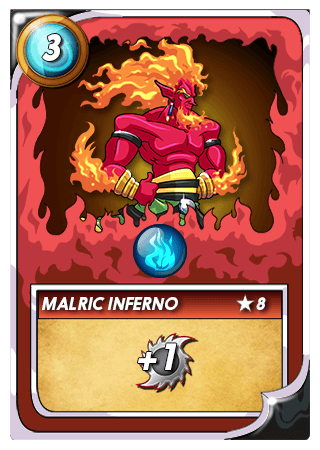 | 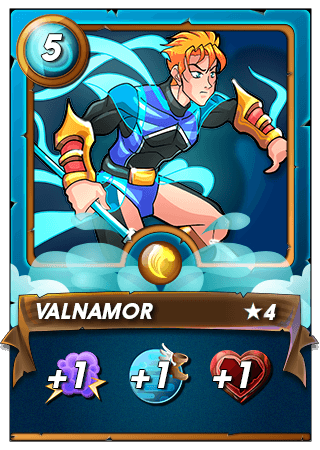 | 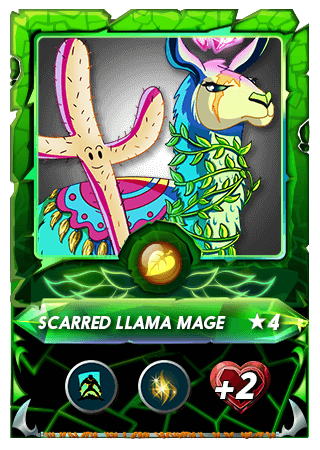 | 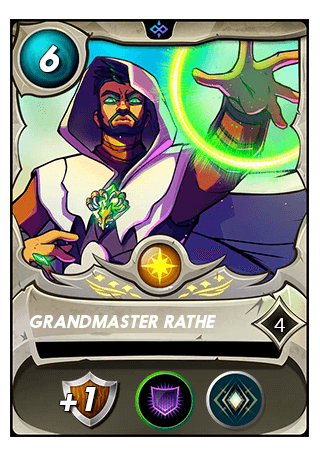 | 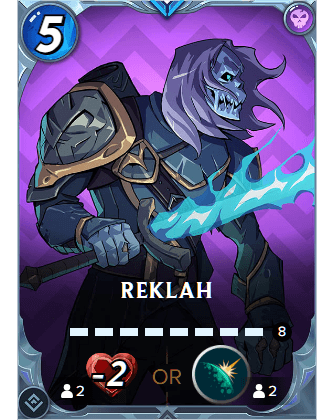 |  | 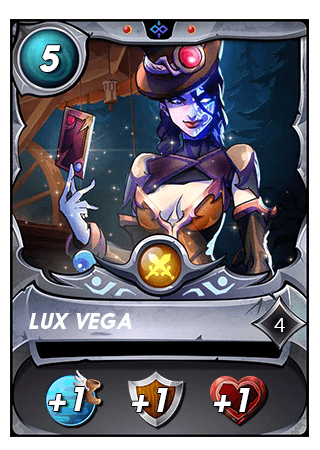 |
Units

Units were the cards that were summoned by the summoner and the cards that does the actual fighting on each battle. Unlike summoner, we can use up to six units on each battle as long as they fit the mana cap and ruleset.
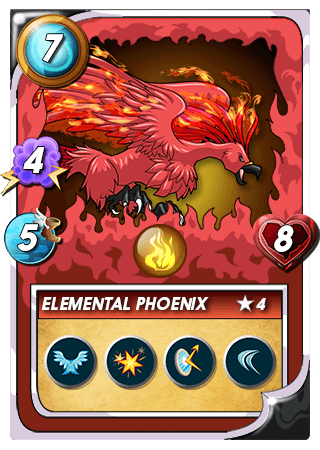 | 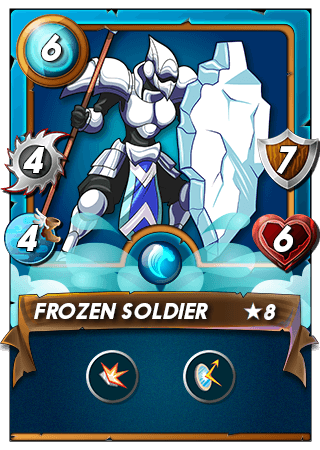 | 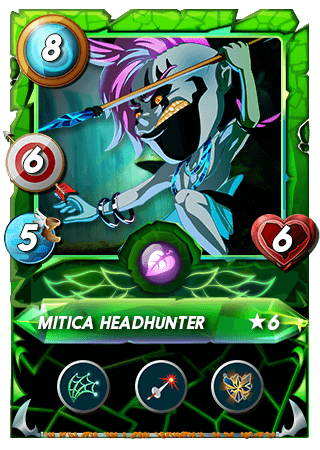 | 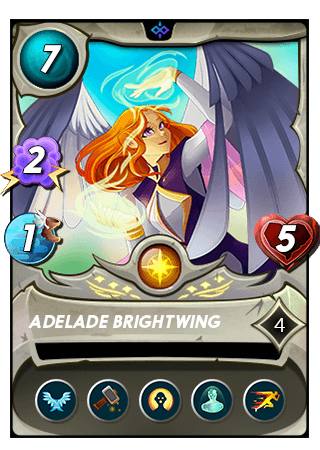 | 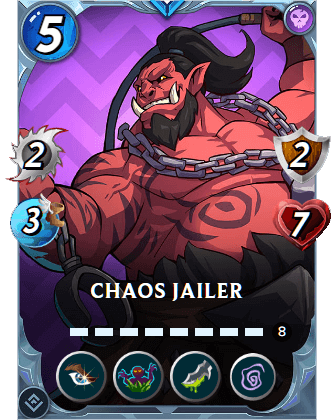 | 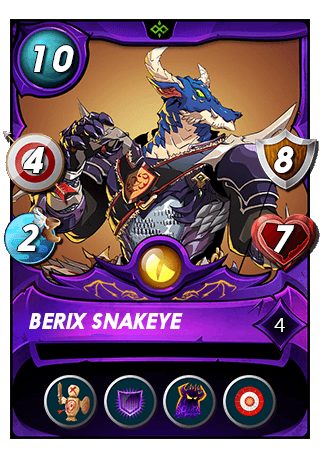 | 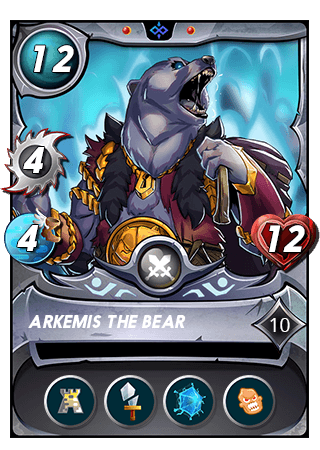 |

Card Anatomy
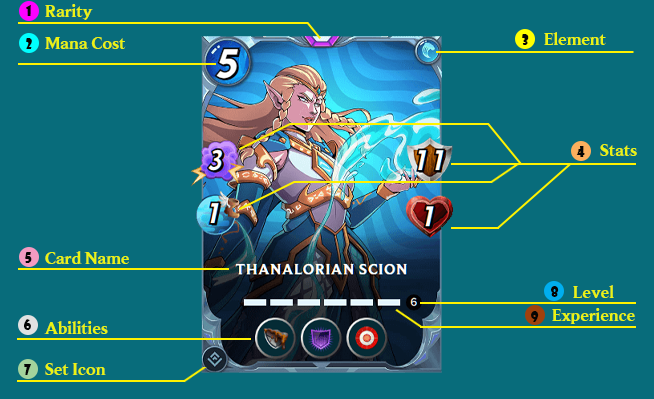
There was already an article that explains the basic anatomy of cards before but as the game continues to evolve, that article has became outdated and may only result confusion for new players. So I find it necessary to have an updated card anatomy which is based on Rebellion which is the newest card set that is available in the game and can be break down in to 9 different parts.
- Rarity
- Mana Cost
- Element
- Stats
- Card Name
- Abilities
- Set Icon
- Level
- Experience
The rarity of the card tells the difficulty of acquiring the card in packs or chest. The rarer the card is, the more difficult they are to get but at the same time, this makes for a higher collection power and price appreciation for the card. The rarity of the card also tells how many copies of the card was needed in order to have a max level card with the rarer card requiring less copies to max.
| Rarity | Copies to Max (RF) | Copies to Max (GF) |
|---|---|---|
| Common | 400 | 38 |
| Rare | 115 | 22 |
| Epic | 46 | 10 |
| Legendary | 11 | 4 |
Mana cost is the price that a summoner or unit needs to consume in order for them to be able to use in battles. Each battles goes with random mana cap and the combined mana cost between the summoners and units cannot be above the mana cap which makes different considerations on what cards to use.
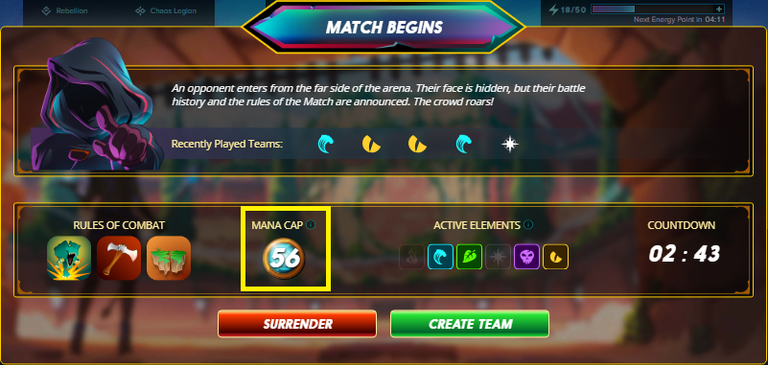
On this battle, it says that the combined mana cost of the cards should not go above 56.
Each cards, whether it was a summoner or unit has their own element. It does not bring any advantage or disadvantage to the game but when choosing your lineup, you can only use units with the same element as your summoner unless it was neutral units. There are some exceptions though such as when using dragon and Neutral summoners. Some cards also posses dual-element cards that enables them to be used along with other elements.
 |  |  | 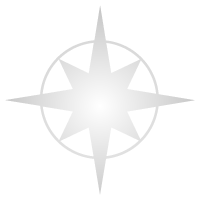 |  |  | 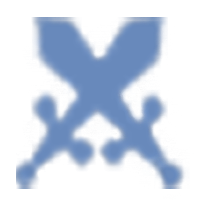 |
Card stats indicates the number of speed, health, armor and damage which are present on each units. There are several factors which may affect the stats of the card such as the level of the card, the summoner used and the abilities of the cards that are present to the lineup. When it comes to damage there where three attack types which are:
 Melee | May only attack at the first position without the use of ability or ruleset and will strike armor first before it can damage the health of the target. |
|---|---|
 Range | Range can attack in any position except for the first position without the use of ability or ruleset and will strike armor first before it can damage the health of the target. |
 Magic | Magic can attack at any position and can directly damage the targets health unless the with the use of ability or ruleset. |
Each card also have their names which makes it easier for them to find specially when looking for cards in the market.
Aside from their stats, each cards posses abilities which they can use to boost the stats of their team, provide support to ally units or give status debuff on the opponent. Summoners also bestow abilities to boost their team or make the opponent team weaker. Currently, there are 89 abilities that are present in the game.

Source: Splintercards
With the past card sets, the only way that you can know which set they belong was through their card frames but with the most recent card sets in modern, set icons were included in the card to make it easier to distinguish them with other sets. The set icon for Chaos Legion was located at the top of the card while the set icon for Rebellion was located in the bottom- right of the card. You can also notice that there are difference to the color of the icon which can tell whether they belong to the core set, mini set, promo or a rewards card.
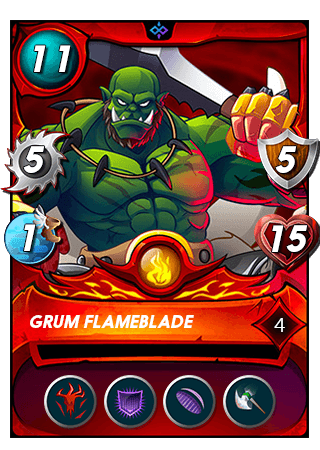 |  | 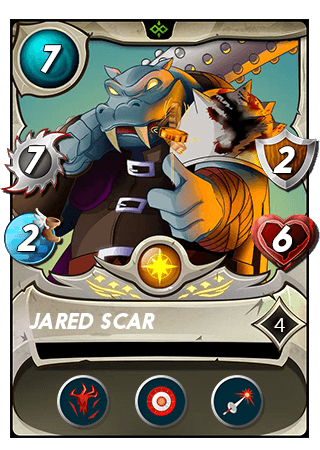 | 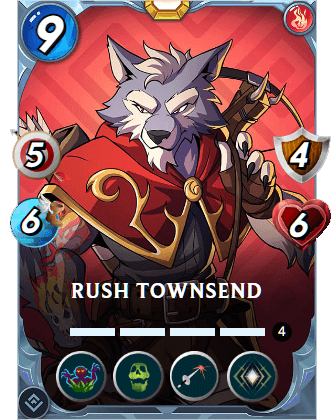 | 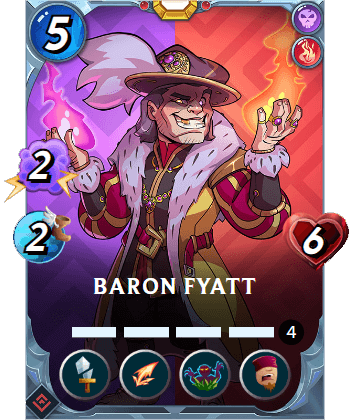 |
Each card has levels on them which upon leveling up, will unlock more of the cards abilities and stats and to level the cards, it needs to be combined with a similar card. once the card was combined it cannot be reverted. The level that is needed to level a card also depends on their rarity. During battles, the level of which you can use your units will be capped by the level of your summoner so even if you have max level units, if you only have your summoner at gold level then you can only use their abilities up to gold.
| Rarity | Level to Max |
|---|---|
| Common | 10 |
| Rare | 8 |
| Epic | 6 |
| Legendary | 4 |
Experience is just a visual indicator to know how far you are before you can max your card.
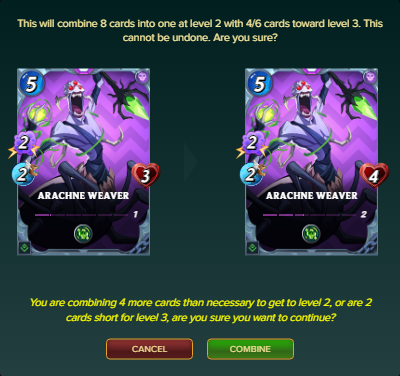

Closing
As the game continues to evolve, I believe that having an updated guide for the card anatomy is very important to help new players to understand the game easier. While that wasn't here, I hope that this post will serve to better understand the anatomy of the cards.
Thank you and see you on the next post!

Previous Post
 |  | 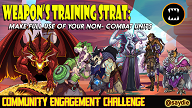 |
All the image that I edited here belongs to Splinterlands.
Card abilities and rulesets from Splintercards
All the battle links provided comes from my personal accounts and from the scholar account that I am using from Balthazar Guild.
Thank you for reading my post. If you're interested to play Splinterlands, you can join by clicking the images below and follow me on Twitter and 3Speak for timely Splinterlands updates.
| Game | 3Speak | Inleo | |
|---|---|---|---|
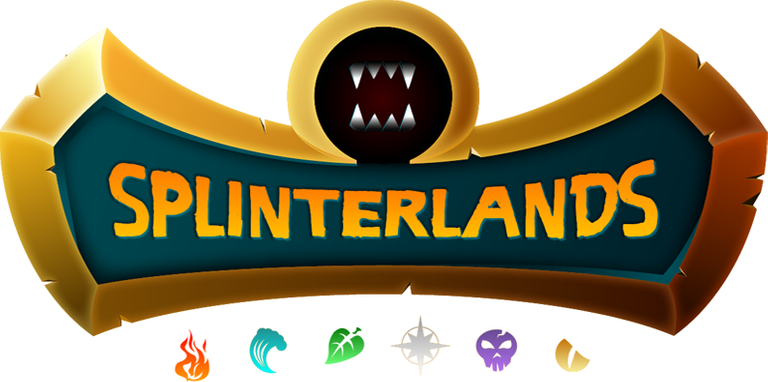 | 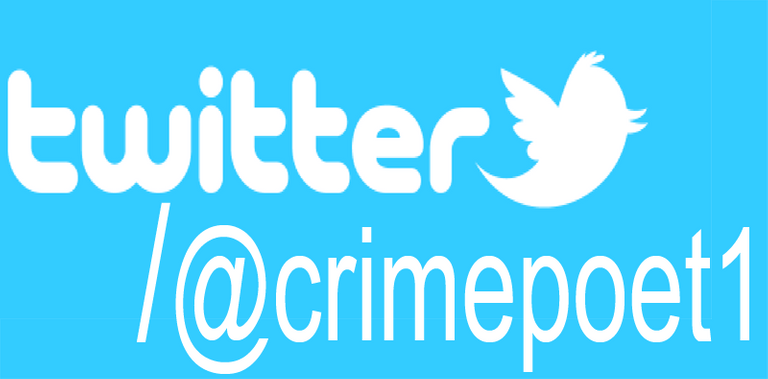 | 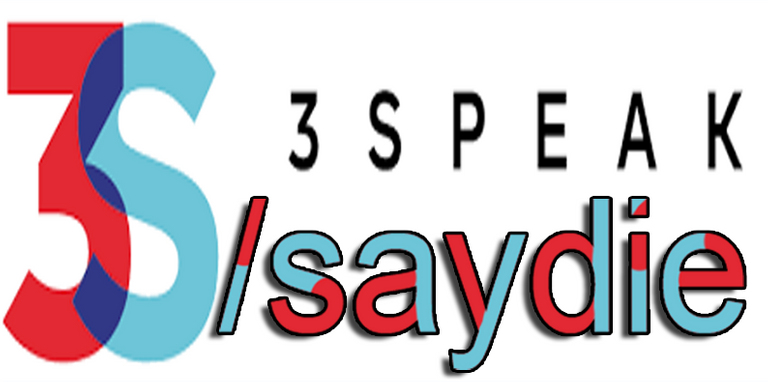 | 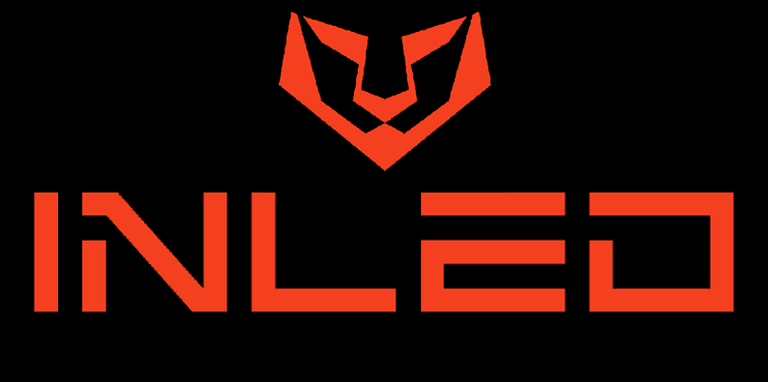 |

Nice post, always impressive to see all the abilities in one image.
Not easy for a new player to understand all abilities rules-sets etc... easy to start hard to master 😁
Indeed, the game cam be quite complicated for new players but hopefully with the game now have free to play mode, new players can stick to study the game then we just need for a good tutorial as well as updated support articles to help them learn the game easier. Thanks for passing by..
This is great! Such a helpful guide for new players! Keep it coming sir.
Would be nice if the game also update their tutorial using modern cards after they are done implementing npe changes. Thanks for coming by!
Thanks for sharing! - @zallin

Good Work, thanks for sharing!
Congratulations @saydie! You have completed the following achievement on the Hive blockchain And have been rewarded with New badge(s)
Your next target is to reach 50000 upvotes.
You can view your badges on your board and compare yourself to others in the Ranking
If you no longer want to receive notifications, reply to this comment with the word
STOP